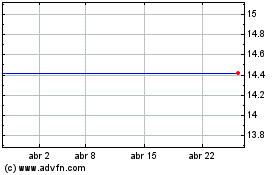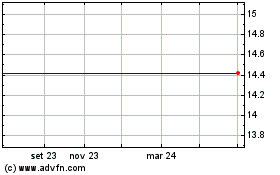By Kim Mackrael and Andy Pasztor
A rift between the U.S. and Canada is growing over how to ensure
the safety of Boeing Co.'s grounded 737 MAX planes, as Ottawa's
focus on additional pilot training could lead to a delay in getting
the jet back in the air.
Canada's transport minister has signaled that his government
could require additional simulator training for pilots of the 737
MAX. That possibility threatens to widen the gap between plans
being developed by U.S. authorities to put the planes into service
and those of other countries, according to industry officials and
others participating in or tracking the process.
"Simulators are the very best way from a training point of view
to go over exactly what could happen in a real way and to react
properly to it, " Canadian Transport Minister Marc Garneau said
Wednesday. "It's not going to be a question of pulling out an iPad
and spending an hour on it."
Separately, Europe's biggest low-cost airline, Ryanair Holdings
PLC, is considering adjustments to 737 pilot-training plans,
according to people familiar with the carrier's thinking, joining
American Airlines Group Inc. in that approach
The U.S. Federal Aviation Administration has tentatively decided
against mandating additional simulator instruction as part of a
package that is anticipated within weeks and includes a software
fix for a flight-control system implicated in two fatal 737 MAX
crashes in less than five months. Industry officials said that
decision could change based on input from foreign regulators, as
well as responses from domestic pilot unions and other groups
during a public comment period ending April 30.
Aviation regulators in Canada, Europe, China and Brazil
previously indicated they would conduct their own safety reviews of
the software fix to the automated flight-control system -- known as
MCAS -- instead of accepting the FAA's analysis and decision to
require only interactive and self-instructional training on laptops
or other electronic devices.
However, Mr. Garneau's remarks are the first explicit break with
the U.S. by a foreign regulator and could mean months of additional
delays in other countries while extra simulator time is reserved
and new training scenarios are developed.
A spokeswoman for Mr. Garneau said no formal decision has been
made about requiring simulator training. She said Mr. Garneau would
wait to see what Boeing says and speak with experts before making a
final decision.
An FAA spokesman didn't have any comment. Previously, agency
officials have said they welcome recommendations from foreign
regulators but stressed that the U.S. will act independently based
on its review of data and safety considerations.
A Boeing spokesman said the plane maker is working with global
regulators and airlines "as they determine training requirements in
their home markets."
The global MAX grounding is rippling through airlines' schedules
and passengers' travel plans. In the U.S., United Continental
Holdings Inc. has taken the jets out of schedules into early July,
while Southwest Airlines Co. and American Airlines have removed the
aircraft from their flight plans into August.
European regulators previously signaled it could take months for
them to assess the FAA's software fix and training requirements,
according to industry and government officials on both sides of the
Atlantic Ocean.
The situation marks a sharp departure from tradition --
stretching back many decades -- when major safety decisions from
the FAA affecting American-built aircraft tended to be routinely
embraced by foreign counterparts. Trust and cooperation have frayed
following the 737 MAX groundings, which have roiled the global
aerospace industry.
The FAA has set up a high-level international advisory panel,
which includes Canadian representatives, to analyze the software
fix and related training issues. FAA officials hope such strategies
will help shore up international support among regulators and
passengers. Brazilian and European regulators previously raised
questions about certain MAX flight-control features during the
initial FAA certification of the plane.
Canada has required additional training for domestic airlines in
the past. After a Lion Air jet crashed off the coast of Indonesia
last year, pilots with Canadian airlines that operate the Boeing
737 MAX 8 and 9 aircraft received training that Mr. Garneau has
said went beyond what was mandated in the U.S.
Ryanair, meanwhile, took the decision to require extra simulator
training as a safety measure even though it isn't required, one of
the people said.
The Irish carrier is one of the world's biggest MAX customers
and the largest in Europe, with 135 ordered and options for 75
more. It was poised to receive its first 737 MAX planes this spring
before the jet was grounded. Ryanair already has taken delivery of
its first MAX simulator with at least one more pending, another
person said.
American Airlines is devising added simulator drills for its 737
pilots to better handle scenarios similar to those that resulted
from the misfiring of the suspect flight-control feature. Ground
simulators specifically designed to mimic the 737 MAX won't become
widely available until autumn or later.
Chicago-based Boeing has been devising a software fix for the
jet's flight-control system that is expected to rely on two sensors
that measure the angle of the plane's nose -- instead of one
currently -- and be less aggressive and more easily controllable by
pilots.
The FAA originally approved the MAX by requiring minimal
additional training for pilots who were transitioning from flying
earlier 737 models. In developing the new model, Boeing aimed to
keep additional training requirements at a minimum so pilots and
airlines could avoid expensive simulator time.
United said it had no plans to add simulator training unless
federal authorities required it. Chief Operating Officer Greg Hart
said Wednesday during an earnings conference call that even without
specific training on the MAX's stall-prevention system, United
pilots already receive training on the type of situation pilots
faced on both the Lion Air flight and the Ethiopian Airlines flight
which crashed last month.
--Robert Wall, Donato Paolo Mancini, Alison Sider and Andrew
Tangel contributed to this article.
Write to Kim Mackrael at kim.mackrael@wsj.com and Andy Pasztor
at andy.pasztor@wsj.com
(END) Dow Jones Newswires
April 18, 2019 13:18 ET (17:18 GMT)
Copyright (c) 2019 Dow Jones & Company, Inc.
Ryanair (LSE:RYA)
Gráfico Histórico do Ativo
De Mar 2024 até Abr 2024

Ryanair (LSE:RYA)
Gráfico Histórico do Ativo
De Abr 2023 até Abr 2024
